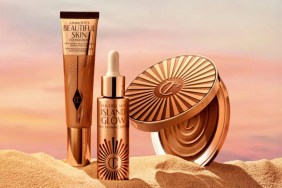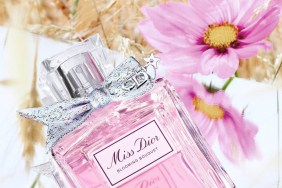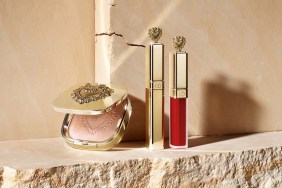You may have seen the term “self-preserving” on beauty product labels, but what does it actually mean? According to the Merriam-Webster Dictionary, self-preservation is defined as “preservation of oneself from destruction or harm.” If you’re wondering how that applies to beauty, Jessica Morelli, founder of natural skin care brand Palermo Body, says it indicates the presence of certain ingredients that help extend the shelf life of the product naturally, without using synthetic preservatives or chemicals. And it does so without having to keep the product in the fridge.
Most beauty products need special additives to ensure stability and prevent the formulas from changing over time. Not only will an expired product be less effective, but it can also be harmful. “Due to the presence of water in most products, strong preservatives are [sometimes] used to stave off the growth of harmful bacteria and fungus,” Morelli says.
When it comes to preventing this bacterial growth using natural preservation, the key is to keep the oil and water separate from one another. “Once you combine them, the shelf life shrinks substantially because the presence of both water and oil is a breeding ground for microbial growth,” Morelli explains.
Leigh Casbourne, brand and product trainer at Lush, says that because of the impact water has on a product’s shelf life, a lot of self-preserving products are made with less water and a higher quantity of self-preserving ingredients. That’s why you will notice a lot of self-preserving products in solid form. For instance, Lush has self-preserving bubble bars instead of the traditional liquid bubble bath.
Some naturally self-preserving ingredients include cocoa butter, vegetable glycerin, salt, honey and clay. Morelli cites certain carrier oils like meadowfoam and antioxidants such as vitamin E and rosemary extract as common ingredients for extending the shelf life of oils, in particular. This is because they prevent oxidation that would otherwise make the oils spoil. And while you definitely don’t want some forms of bacteria in your beauty products, good bacterial strains like Lactobacillus, a type of bacteria found in fermented food like sauerkraut and kimchi, can actually help prolong the shelf life of water-based products such as facial toners.
If you’re wondering about the difference between self-preserving and preservative-free, Lush points out in its guide to self-preservation that the labeling can sometimes be confusing. “Preservative-free” implies that a product is completely free of preservatives. Many products that are labeled as such aren’t truly preservative-free because they often contain ingredients with self-preserving properties.
The benefit of self-preserving or preservative-free products is that they are often less likely to irritate sensitive skin than products that use synthetic or chemical preservatives. In addition, the natural antioxidants that help products stay fresh also help keep skin nourished and glowing. When it comes to products with good bacteria, Morelli points to recent research that shows the anti-inflammatory skin care benefits of probiotics.
One of the downsides of self-preserving products is that they will not have as long of a shelf life as ones with synthetic preservatives. To get the most out of your self-preserving products, you can help prolong their lifespan by keeping them out of direct sunlight and not storing them in warm, humid conditions. That means not leaving them on the vanity or in the shower.
Ready to give self-preserving products a try? Here are some of our favorite makeup, hair and skin care products that have naturally preserving formulas down pat.
[ Next: Earth Day Awards: The Best Organic Makeup and Natural Beauty Products of 2017 ]
Why You Need to Be on the Lookout For Self-preserving Beauty Products
-
Cleansing Mask

Did you know that Lush's popular Mask of Magnaminty comes in a self-preserving formula? The secret is that it's formulated with more honey than the original. This makes it especially good for those with dry skin. Fans of the original mask will be pleased to know that the self-preserving formula still has the refreshing peppermint oil. It also goes down deep to cleanse your skin thanks to kaolin clay, ground adzuki beans and bentone gel.
Lush Mask of Magnaminty – Self-Preserving, $26.95 at Lush
-
Facial Serum

It's time to start your love affair with facial oils, if you haven't already. This one helps to nourish and restore your complexion thanks to rosehip and an innovative "CO2 supercritical" extraction method. The process allows the oils to be drawn from the plant in their purest form, resulting in a superior product.
Palermo Body Regenerative Facial Serum – Rosehip CO2, $68 at Palermo Body
-
Lip Crayon

Start your preservative-free makeup collection off with this sleek crayon. The vegan lipstick gives lips a flattering semi-matte finish and juicy color. It's also free of gluten, fragrance, mineral oil, nanoparticles and it's cruelty-free.
ILIA Lipstick Crayon, $24 at Sephora
-
Peel-Off Mask

Take a trip to the dark side with this black mask. All of the products in boscia's range are preservative-free and draw inspiration from Japanese skin care. This award-winning peel-off mask is no exception. It is formulated with rosemary leaf oil, clay, eucalyptus extract and vitamin C. The ingredients help to absorb excess oil, minimize the appearance of pores and boost radiance.
boscia Luminizing Black Mask, $34 at boscia
-
Deodorant

Who said that deodorants can only come in sticks and sprays? This all-natural deodorant cream utilizes very fine vegetable powders, clay and a blend of essential oils to keep your underarms moisturized and feeling fresh. All of the ingredients are food-grade and each tub is made to order, so you get the freshest vegan product.
Soapwalla Deodorant Cream, $14 at Soapwalla
-
Exfoliating Scrub

All of Sensé's products are formulated without added chemical preservatives. Instead, they rely on their natural attributes to keep them fresh. This gentle exfoliator contains fruit enzymes, aloe, beta hydroxy acid and rice bran beads to smooth and soothe skin.
Sensé Rice Bran Polisher Gentle Exfoliating Scrub, $17 at USANA
-
Hydrating Gel

If you're a big Korean beauty devotee, you will be glad to hear that belif doesn't use any synthetic preservatives, dyes or fragrances. But the formulas are still amazing. This lightweight gel-cream delivers ample hydration without feeling greasy. Plus, it reduces the appearance of pores and boosts elasticity. As we loved to say back in the day, it's the bomb.
belif The True Cream Aqua Bomb, $38 at Sephora
-
Vitamin C Powder

Vitamin C is notoriously difficult to preserve. Once you open a vitamin C-rich serum, it loses its potency with every passing day. Luckily, this K-beauty boosting powder has found a way to keep the ingredient fresh for up to 12 months, and it has managed to do it without any synthetic preservatives. The secret is a vitamin C complex that stores the anti-aging ingredient between mineral layers. And the technology is just as impressive once it's on your skin. When you apply the powder with your favorite skin care product and some water, it continuously releases active vitamin C for 12 hours.
Vitabrid C12 FACE Brightening Powder, $60 at Barneys New York
-
Shampoo

Think about self-preserving beauty from your head to your toes. This luxuriously packaged shampoo takes care of things on the hair front. The spearmint, sage and rosemary formula is suitable for all hair types. It gently cleanses your scalp and hair without disrupting critical pH balance. FYI: It's also sulfate-free.
Lavett & Chin Hair Wash/Light, $40 at Goop








